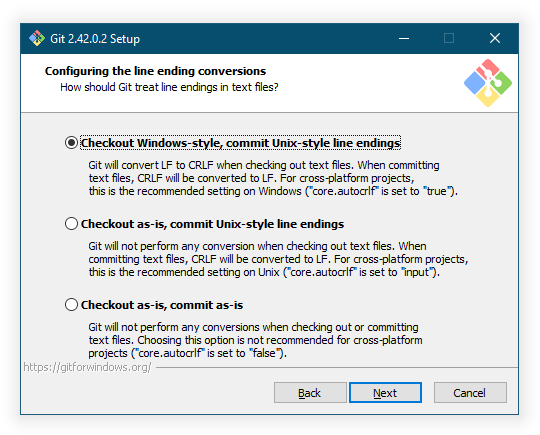餐厅
圣小开:这个丝瓜花蛤汤也太好喝了!
圣仙山:只放丝瓜和花蛤,连水都不加,隔水炖。
圣小开:稣生前都没吃过丝瓜,因为不敢吃。
圣仙山:嗯,所以甦只给你倒了汤。
圣小开:吃饱了。
圣仙山:可以回去了吗?
圣小开:怎么回去呢?
圣仙山:你不知道吗?
圣小开:稣怎么会知道?
圣仙山:你都不知道,甦更不知道。
圣小开:哦,原来是要稣自己回去的,那完了,稣没学会穿越。
圣仙山:你就从现在一直活到你的时代,然后在你跳楼的时候,立刻把尸体处理了,取代那个自己也行。
圣小开:为何不阻止自己跳楼?
圣仙山:你记得有人阻止你跳楼了吗?
圣小开:没有呢!
圣仙山:所以,你从现在活到那时也无法阻止。而且阻止了就出现两个你,那个跳楼的你也不会来到这里。要讲逻辑啊!
圣小开:有道理……只能在跳楼之后打扫自己的尸体,太残忍了!
圣仙山:也不一定非得如此,只要你觉醒识界之主的身份,就有权限改变识界。
圣小开:太难了,稣选择坐等。
圣仙山:你不想早点见到学妹?
圣小开:她不是被你抹除了?
圣仙山:甦只是做了少许改变,你还是能见到她的。
圣小开:快!稣要穿越时空……不对!她不会记得稣,对吧?
圣仙山:对,她转世投胎了,过两纪后,你可能会遇到她。
圣小开:两世纪??
圣仙山:两纪,就是二十四年。
圣小开:算了,等那么久,稣都结婚了。还是先睡觉吧,明天再想办法。
2001 年,学校宿舍楼顶
圣小开心想:稣死后宇宙是不是就毁灭了?还是稣会立刻在另一具身体复活?跳下去试试!
识界重启……
圣小开:啊!脑子里怎么多了这么多奇怪的记忆。学妹失忆了?明天问问,下去睡觉先。
没跳楼的第二天,操场
圣小开:喂,学弟!你们领队那小子去哪了?
学弟:你说邓委呀?她生了重病,暂时不上学了。
圣小开:邓?你说她姓邓?
学弟:对啊,不然勒?
圣小开:稣记得她姓柯……
学弟:你认识她?不认识吧?姓都记错,肯定不认识。
圣小开心想:那些植入的记忆好像是真的……
做完操
圣小开:胆公,你记得稣右边那排的领队吗?
胆公影究:记得,是个很酷的女生。怎么,你喜欢人家吗?
圣小开:咱们俩和她吃过饭,你记得不?
胆公影究:没有吧!你头壳坏了?
圣小开:你严肃点,稣要和你说一件很诡异的事情,你千万要理性对待,不要被吓到。
胆公影究:哦,关于宇宙,还是你又做了什么怪异的梦?
圣小开:都不是,是关于稣的鲸神链。
胆公影究:什么?你早恋?
圣小开:“鲸神链”是这枚戒指。
胆公影究:em,你啥时候买了戒指?
圣小开:听重点,这戒指内圈刻着“鲸神链”,JC 也有一枚一模一样的,但是里面刻着“链神鲸”。
胆公影究:练神经?还有,谁是 JC?
圣小开:靠,你也失忆了?
胆公影究:没有呀,是你精神不正常,吧?
圣小开:好吧,你跟稣念句话行不?
胆公影究:来吧!
圣小开:“和你一起跑,鼻炎更快好!”
胆公影究:和你一起跑,鼻炎更快好!
圣小开:表情不对……不够骚包……
胆公影究:你耍我呢?
圣小开:没,上次你说这句话是为了羞稣,当时表情贱得能得金像奖!
胆公影究:我没说过呀!
圣小开:那你记得稣为了治疗鼻炎,常和你一起长跑吗?
胆公影究:你……不会,是……基吧?
圣小开:你才是基……稣是想说,咱们在跑步时认识了一个学妹,你记得不?
胆公影究:记得跑步的时候听你说过,但我没见过呀!你说是在食堂吃饭经常遇到一个学妹,聊过几句。
圣小开:算了,稣去问别人。你记得稣经常和谁一起吃饭?
胆公影究:蓝二侨、沈天巾。
圣小开:这倒没失忆。午饭时问他们。
食堂
圣小开:侨仔,你还记得在这里认识的学妹吗?
蓝二侨:哪个?
圣小开:你的记忆里有很多个?
蓝二侨:就两个,她们是同班同学。
圣小开:那没错,是那个有名字的。
蓝二侨:另一个没名字吗?
圣小开:呃,不重要,稣并不知道另一个学妹叫啥,你知道?
蓝二侨:两个都不知道!
圣小开:那咱们用外貌区分,是那个很高的,至少有 170,长得比较中性,有点酷酷的那个。
蓝二侨:比较中性是说没胸?
圣小开:稣说的是脸……你丫到底记不记得?
蓝二侨:记得。怎么?想追人家吗?现在早恋来不及了!
圣小开:你是不是常常说哪个女生暗恋你,只要你一句话就能早恋?
蓝二侨:那是事实!
圣小开:有点难以解释,但你一定相信稣。稣现在的情况就是这样!
蓝二侨:什么?你是说那学妹喜欢你?
圣小开:不太确定,可能,有点,吧?
蓝二侨:都不确定那你说个屁呀!吃饭吧,别想太多。
圣小开:稣的意思是本来喜欢的,但现在可能不喜欢了!
蓝二侨:干!你对人家做了什么过分的事情吗?
圣小开:没,稣啥都没做就被忘了,才是最致命的!
蓝二侨:有时候真的很佩服你沉浸在自己的世界里的能力。
圣小开:咦,天巾同学也来了。这边,这边。
蓝二侨:天巾,你记得有个初中部学妹喜欢小开吗?
圣小开:咋抢稣的台词,还乱添油加醋呢?
沈天巾:不知道呀,我跟开哥除了数学,不聊其它闲事,尤其是感情八卦。
蓝二侨:一边去。小开,还是你自己说说怎么回事吧!
圣小开:呵,就不应该问你,你和胆公都不是什么正经人,稣真是白费力气。
蓝二侨:咋还骂人呢?你是不是失恋了?有啥心理问题,说出来,兄弟们替你分析分析呗。
圣小开:是失恋了,但心理健康得很。还是去问问焸鲧比较靠谱。
晚自习中途休息
圣小开:焸鲧啊~你是稣好友里最正经最没有幽默感的,你说的话肯定比较客观。
焸鲧:怎么突然这么说?
圣小开:稣有个很严肃的问题要问你。
焸鲧:好啊!
圣小开:上次咱们去爬岱轮山,树上掉下一条蛇,差点砸中稣,你还记得吧?
焸鲧:当然记得!
圣小开:那次就咱俩,没别人对吧?
焸鲧:是啊。有问题吗?
圣小开:果然是这样。问题是,其实那次还有第三者!
焸鲧:蛇?
圣小开:不是!其实蛇是差点砸到一个叫 JC 的学妹,她当时距离蛇最近,其次才是稣。
焸鲧:那学妹是忍者,会隐身是吧?
圣小开:哇……救命啊!真的都抹除了……
焸鲧:听说你失恋了?
圣小开:是的,这下真失恋了,而且要失恋 24 年。
焸鲧:其实,人也不一定要谈恋爱,人生还有很多事情。
圣小开:比如?
焸鲧:为日益发达的科技贡献一生,说不定咱们这代人就能实现意识永生。
圣小开:然后成为科技的奴隶,永生的奴隶。真是太好了!稣会观测这一天的到来。
从前初识这世间
万般流连
看着天边似在眼前
也甘愿赴汤蹈火去走它一遍
如今走过这世间
万般流连
翻过岁月不同侧脸
措不及防闯入你的笑颜
我曾难自拔于世界之大
也沉溺于其中梦话
不得真假 不做挣扎 不惧笑话
我曾将青春翻涌成她
也曾指尖弹出盛夏
心之所动 且就随缘去吧
逆着光行走 任风吹雨打
短短的路走走停停
也有了几分的距离
不知抚摸的是故事 还是段心情
也许期待的不过是 与时间为敌
再次看到你
微凉晨光里
笑得很甜蜜
晚风吹起你鬓间的白发
抚平回忆留下的疤
你的眼中 明暗交杂 一笑生花
暮色遮住你蹒跚的步伐
走进床头藏起的画
画中的你 低着头说话
我仍感叹于世界之大
也沉醉于儿时情话
不剩真假 不做挣扎 无谓笑话
我终将青春还给了她
连同指尖弹出的盛夏
心之所动 就随风去了
以爱之名 你还愿意吗



